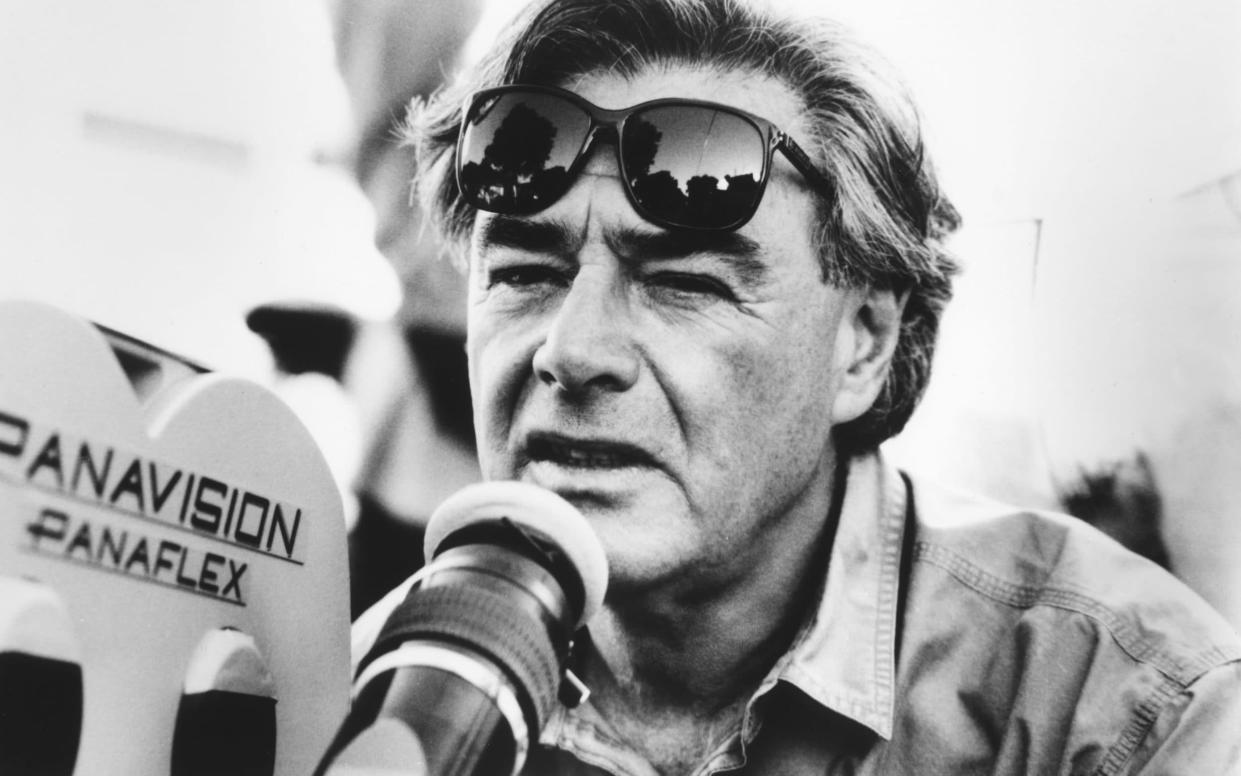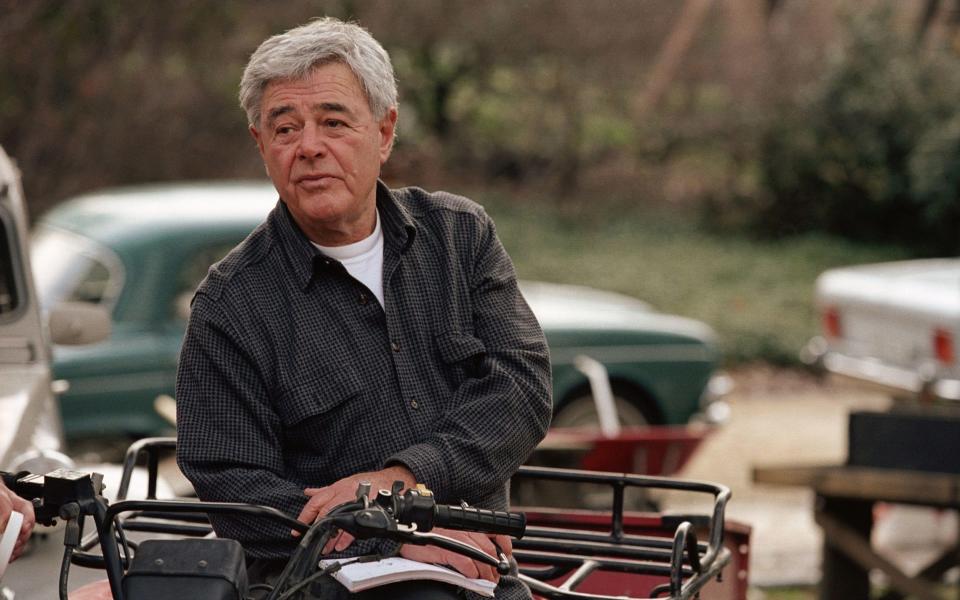Richard Donner, director of a string of blockbuster movies including The Omen, Superman and Lethal Weapon – obituary

Richard Donner, who has died aged 91, was the American film director behind the horror flick The Omen (1976), the Christopher Reeve superhero movie Superman (1978) and the comedy adventure The Goonies (1985); he later worked on the Lethal Weapon franchise, developing a close friendship with its deranged detective Mel Gibson, whom he also directed in Maverick (1994) with Jodie Foster and Conspiracy Theory (1997) with Julia Roberts.
Donner had spent 20 years working in television and had made a couple of little-known feature films before getting his big break with The Omen, a Grand Guignol supernatural thriller starring Gregory Peck and Lee Remick.
It tells of the American ambassador to London’s illicit adoption of a boy called Damien that sets in train a series of terrifying events and lurid deaths, leading the family to the awful realisation that their son is the long-prophesied Antichrist.
The Omen featured memorable scenes filmed at Guildford Cathedral, and outside All Saints’ church, Fulham, where Patrick Troughton’s priest meets a gruesome end, impaled by a lightning conductor. It upset Christian groups and critical opinion, The Daily Telegraph’s Patrick Gibbs finding it silly – “unpleasantly and … absurdly sensational”. Nevertheless, The Omen became one of the highest-grossing films of 1976.
The director believed its popularity lay in the fact that science had eliminated Martians as a fantasy and that the film industry had turned to the Devil to replace them. “Perhaps nowadays audiences prefer a good satanic thriller to a good shoot-’em-up because they’re looking for mystical explanations,” he told The Guardian. “To me the Devil is nothing more than man’s inhumanity to man.”

The success of The Omen meant that Donner, who until then could remember every scene of every television episode he had ever churned out, was able to enjoy the recognition that had eluded him for so long.
Yet when the call came offering him $1 million to make Superman and Superman II back-to-back, he was hungover, and on the lavatory – although he remembered being dazzled by the idea, the cast and the cash. He had grown up reading Superman comics and loved the character’s tales, which had previously been adapted for television.
The producers had hired Mario Puzo, author of The Godfather, as writer and bagged Marlon Brando to play Jor-El, Superman’s father, with Gene Hackman as the villain Lex Luthor. Donner, however, felt that the screenplay, already rewritten from Puzo’s draft, was a camp parody of his childhood action hero.
He persuaded his friend Tom Mankiewicz, who had written some Bond films, to rewrite it, dressing in a Superman outfit and leaping out from behind a fence as Mankiewicz drove into his driveway.
But relations with the producers soured. Donner was told to stop working on Superman II and complete only the first film, which was released to much praise and box-office success. He was replaced for the sequel by his friend Dick Lester, who reshot many of his scenes and rewrote others.
When Superman was released, some viewers took umbrage at the vaguely religious allegory of Jor-El sending his only son to Earth. “One woman wrote a letter saying how dare I compare Brando to God and Christopher Reeve to Jesus,” he recalled. “She said my blood would run in the streets.”

The Goonies, by contrast, was a charming tale pitting a kind of Oregon branch of the Secret Seven against a gang of comedy villains in the search for 17th-century pirate treasure. Executive-produced by Steven Spielberg, it became one of the Top 10 grossing films of 1985, Donner explaining that its success lay in its being “sophisticated enough for kids and silly enough for adults”.
He was born Richard Donald Schwartzberg in the Bronx, New York, on April 24 1930, the son of Fred Schwartzberg and Hattie (née Horowitz), both Russian-Jewish immigrants; his sister, Joan, became a psychologist.
Their father owned a small furniture factory and relaxed by making wood carvings; Richard’s grandfather owned a cinema in Brooklyn where as a boy he was often deposited, and his mother, a former secretary, had cameo roles in several of her son’s films, as did the director himself.
He served in the US Navy, had a summer job parking cars and signed up for a business studies course at New York University. By the time he had dropped out after two years, he was moving in acting circles and had taken his stage name from the Donner Party tragedy of 100 years earlier, in which snowbound American pioneers resorted to cannibalism in the Sierra Nevada mountains.
There was no shortage of acting work, but a small appearance in Martin Ritt’s 1951 television series Of Human Bondage led to a change of focus. “Marty told me I’d never make it as an actor because I couldn’t take direction,” he told Variety magazine. “But he thought I could give it, and offered me a job as his assistant.”

During the 1950s Donner had several television directing jobs and along the way met the actor George Blake. They hit it off spectacularly, travelling around America together making documentaries and commercials, some of which Donner directed. Before long he had settled in Los Angeles, finding work directing episodes of television series, some for the western Wanted: Dead or Alive with Steve McQueen, The Man from U.N.C.L.E. and later Kojak.
His first feature film was X-15 (1961), a fictionalised account of the American rocket research programme starring Charles Bronson and Mary Tyler Moore. It would be another seven years before his next film, Salt and Pepper (1968), a British comedy crime thriller with Sammy Davis Jr, Peter Lawford and John Le Mesurier.
Donner’s post-Superman fortunes were mixed, with modest films such as Inside Moves (1980), an uninspiring drama about male friendships, and Radio Flyer (1992) with Tom Hanks and Lorraine Bracco.
But these were offset by the huge success of Lethal Weapon (1987), a buddy-cop movie starring Mel Gibson and Danny Glover which combined violence with wisecracking humour and made more than $120 million; there were three sequels. Donner returned to the superhero genre as executive producer of X-Men (2000) and its various spin-offs.

Donner once explained that he saw the filmmaking process as akin to romance, marriage and birth: “In pre-production you’re getting acquainted; filming is like a marriage; and when the movie comes out of the lab, it’s the ‘baby’ you hope everyone loves as much as you do.”
Away from film-making he was an animal-rights activist and kept a home in the San Juan islands, off the coast of Washington state, from where he enjoyed watching whales and dolphins.

He once rescued from captivity a whale named Keiko, making him a star of the film Free Willy (1993) on which he was executive producer. He also relished working on his tractor and mingling with the islands’ largely blue-collar community. “It’s like Norman Rockwell come to life,” he laughed.
Richard Donner had long been known for his bachelor lifestyle, but in 1986 he married the producer Lauren Shuler, whom he credited with “insulating me from the much of the unpleasant side of movie making”. She survives him.
Richard Donner, born April 24 1930, died July 5 2021

 Yahoo News
Yahoo News 
